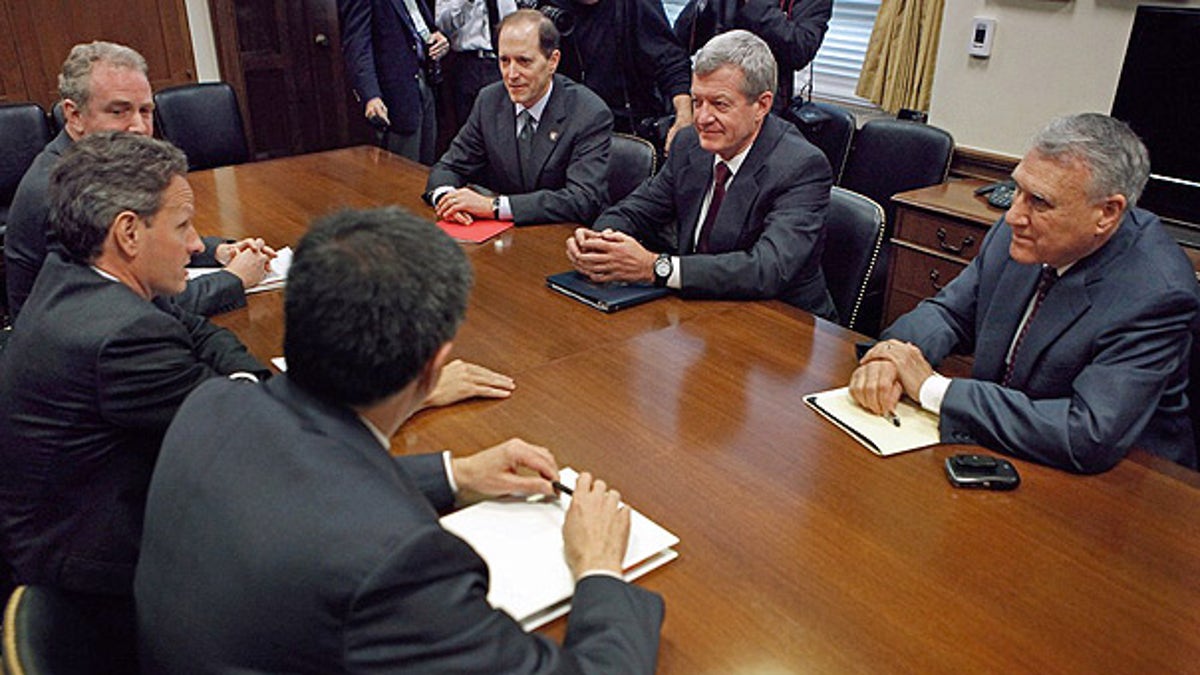
Dec. 1: Treasury Secretary Timothy Geithner, OMB Director Jacob Lew, Rep. Dave Camp (R-MI), Senate Finance Committee Chairman Max Baucus (D-MT) and Sen. Jon Kyl (R-AZ) meet to discuss extending Bush-era tax cuts in Washington. (AFP)
Republicans and Democrats sat down Wednesday to negotiate a compromise on extending Bush-era income tax cuts—an effort that could be the first step toward a deal this month that many strategists in both parties believe will temporarily extend current tax rates for all income levels.
No decisions were reported from the first meeting of the small group that was appointed by President Barack Obama and leaders of both parties in the House and Senate. Still, White House officials expressed optimism about prospects for a bipartisan compromise.
"We're in the midst of productive discussions and negotiations around what I think everybody agrees is an issue that has to get done in taxes," said White House spokesman Robert Gibbs. "I think we can get some substantive agreements."
Unless Congress acts before Dec. 31, tax cuts signed into law by former President George W. Bush will expire, and tens of millions of people could see the taxes withheld from their paychecks go up almost immediately. Most Democrats favor permanently extending the Bush-era tax cuts for families making less than $250,000; Republicans want to extend them for everyone, including higher earners.
Separate from the formal negotiations, congressional aides from both parties have begun discussing a temporary extension of the expiring tax cuts.
Those conversations, described as preliminary, have taken place over the past few weeks. They have considered short-term extensions of a number of business and individual tax provisions that are expired or expiring, such as a popular research credit and middle-class protection from the alternative minimum tax. A likely outcome includes a one- to three-year extension of the Bush-era income tax rates and a two-year extension of the business provisions, according to aides. The package could include Democratic priorities such as extension of tax breaks that benefit the working poor, as well as further extension of unemployment benefits for the long-term jobless.
An agreement on temporary extension of all the current rates and breaks would represent a breakthrough after months of partisan infighting. It would signal lawmakers' intent to avoid the public outrage that could result if the two sides failed to reach a tax deal this month. Many retailers and economists worry that the tax increase could tamp down household spending and further weaken employment and the fragile recovery.
Underscoring that risk, the commissioner of the Internal Revenue Service, Douglas Shulman, sent a letter to lawmakers on Wednesday, warning that postponing extension of some breaks, such as a measure to diminish the bite of the alternative minimum tax, could be "extremely detrimental" and risk significantly delaying refunds.




